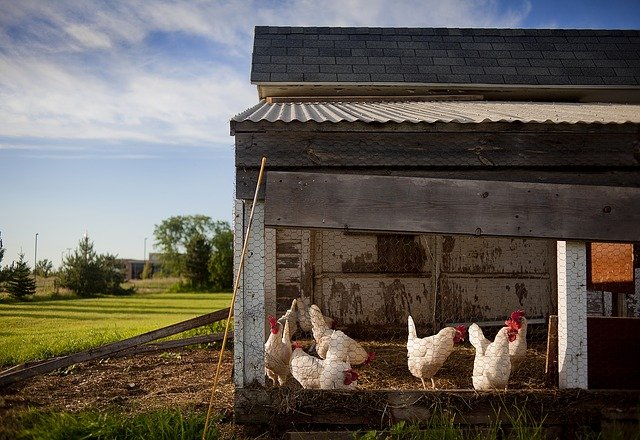It is very important to protect your poultry from all potential predators. There are several ways to do this. One of the most effective are fencing and closing, up to the use of electric fences and training.
Although you may not like it, preventing predator attacks is one of the key aspects in poultry farming. Considering the number of predators that include foxes, weasels, badgers, snakes, falcons and rats, it is very important that you know what kind of dangerous animals live in the area you are in, so that protect poultry more efficiently.
Domestic chickens are very full laketaking into account their evolution and way of cultivation, so they are not “equipped” with effective survival skills.
It is precisely for this reason that the room for keeping chickens must be efficiently secured. Experts suggest that the chicken coop be made just like your house, i.e. from the same or similar materials.
Below you can read six more tips on how to effectively provide a home for your chickens.
I – Place an adequate fence
The first step to an effective defense is good fence. A fence normally used to enclose chickens is no barrier to a hungry fox or badger. So it is recommended to use stronger and thicker wire for fencing.
In ideal conditions, the fence should be buried from half to one meter below the ground to prevent digging in and easily evading your first line of defense.
It is also recommended to fence next to them iskopa rov which would contain material that will discourage digging. All holes in the chicken coop should be closed to prevent snakes and rats from getting to the eggs.
How to CLEAN and disinfect a CHICKEN HOUSE in 5 steps
II – Close the poultry during the night
At night, it is very important that the chickens are closed inside the building. This is especially important when you are not present and you supervise them yourself. It is enough to install some mechanism on the door that will not be able to open easily.
III – Provide them with a safe roof
In areas where birds pose the greatest danger, adequate roof will be the biggest obstacle to different predators. Once you’ve protected yourself from the ground, a good roof will prevent hawks during the day and owls at night from getting to your feathered fowl.
One of the effective forms of protection is a metal roof, because due to the slippery surface and the strength of the material, birds will not be able to break through it. Another solution is strong wire mesh which is placed above the surface where the chickens stay.

IV – Prevent wandering with training
One way to prevent your chickens from wandering out of the coop is to learning to always enter within the secured space. And that by feeding them just before closing. If you repeat this process several times, they will come alone inside the coop every night.
After feeding, the remaining food should be cleaned up, and the rest of the food should be kept in well-closed containers so that it does not infect other animals.
V – Install a motion sensor light
It is preferable, if feasible, to place a light that is activated by movement around the chicken coop. Many raptors, which hunt exclusively at night, can be driven away by the sudden presence of bright light.
This is it very effective when it comes to rats. Also, in addition to the surprising effect, this can turn his attention to you that an animal moves near your poultry.
VI – Choose a good position of the chicken coop
Location is very important when planning to build a chicken coop. Try to place it as much as possible away from trees or tall grass. Mow the grass around the facility regularly, as this reduces the area where predators can hide.
Portable MOBILE HEN: Chickens are healthier and produce more eggs
VII – Marking the territory
How would you hold handcuffs away from your property, the urine trick is recommended. What you need to do is look for a fox den and urinate directly into it.
This can be quite fun for all the young guys on your property. Send them to mark any areas that look like fox dens. Alternatively, you can collect the urine in a jar and pour it around the burrows.
Foxes have a strong sense of smell, so the smell of your urine alerts them to the possibility that the territory is occupied and encourages them to move on.
In this way, the number of foxes is drastically reduced.
Source: www.agromedia.rs


